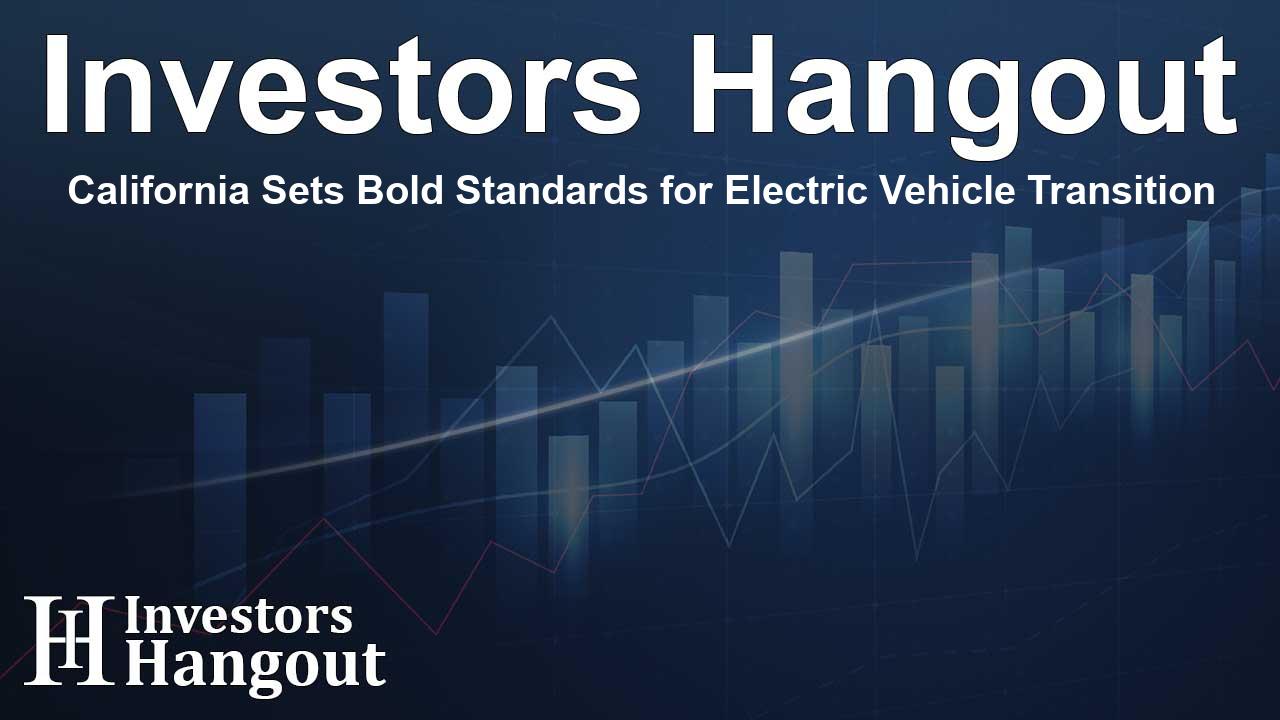California Sets Bold Standards for Electric Vehicle Transition

California's Ambitious Plans to Transition to Electric Vehicles
The U.S. Environmental Protection Agency (EPA) recently approved California's pioneering initiative to eliminate the sale of new gasoline-powered light-duty vehicles by 2035. This landmark decision aligns with California's ongoing efforts to protect air quality and combat climate change.
What the EPA Waiver Means for California
This waiver granted by the EPA allows California to enforce regulations ensuring that all new light-duty vehicles sold within the state by 2035 must be either plug-in hybrids, battery electric, or hydrogen-powered vehicles. Additionally, the EPA authorized California's comprehensive low-NOx (nitrogen oxides) regulation, which targets harmful emissions from heavy-duty trucks, enhancing environmental protections statewide.
EPA Administrator's Comments
EPA Administrator Michael S. Regan emphasized California's authority to seek these waivers under the Clean Air Act. Regan remarked, "Today's actions exemplify EPA's commitment to collaborating with states to tackle emissions and confront the climate change crisis." The continued partnership between the state and federal agencies aims to establish a sustainable environment.
Reactions to the Decision
This historical move has garnered various responses. Governor Gavin Newsom expressed enthusiasm, stating, "Clean cars are here to stay," and reaffirmed California's determination to innovate in the automotive sector. Newsom highlighted the ongoing challenge from opponents who prioritize fossil fuels over cleaner alternatives.
Internal Combustion Engines in the Future
It is essential to note that the new regulations focus solely on new vehicle sales, meaning internal combustion engine vehicles will still be in use for many years, potentially beyond 2050. This approach balances the transition to cleaner technology without abruptly removing existing vehicles from the roads.
Future Challenges and Incentives for Electric Vehicles
Recently, Governor Newsom proposed a plan to provide incentives for electric vehicle buyers to counter any federal rollback of existing EV tax credits. His proactive stance reflects a commitment to advancing electric vehicle adoption regardless of changes at the federal level.
Political Landscape and Electric Vehicle Push
The political landscape around electric vehicles remains contentious. Former President Trump has criticized California's electric vehicle initiatives and indicated intentions to roll back EPA approvals. This mixed political response highlights the ongoing debate surrounding environmentally conscious policies and automotive regulations.
Looking Ahead: What This Means for Consumers
As California implements its electric vehicle transition strategy, consumers can expect to see a substantial increase in the availability of electric and hydrogen vehicle models. The initiative not only promotes cleaner air but also encourages technological innovations among automakers aiming to meet new market demands.
California's Leadership Role
California has long been a leader in environmental regulations, and this decision is another step in reinforcing its commitment to reducing greenhouse gas emissions and protecting public health. Other states may follow California's lead, creating a ripple effect throughout the country regarding vehicle emissions standards.
Frequently Asked Questions
What is the main goal of California's new EV regulations?
The primary goal is to ban the sale of new gasoline-powered vehicles by 2035, promoting cleaner alternatives like electric and hydrogen-powered vehicles.
Who supports the transition to electric vehicles in California?
California's Governor Gavin Newsom and the EPA Administrator Michael S. Regan are among the prominent supporters of this initiative, emphasizing its importance for public health and environmental protection.
How will these regulations impact existing vehicles?
The regulations are focused on new vehicle sales, meaning existing internal combustion engine vehicles will still be on the road for years to come.
What incentives is California considering for electric vehicle buyers?
Governor Newsom has proposed incentives for EV buyers to ensure continued adoption, especially in light of potential changes to federal tax credits.
What challenges does California face in this EV transition?
Political opposition, including pushback from fossil fuel supporters, presents challenges to the smooth implementation of these new regulations.
About Investors Hangout
Investors Hangout is a leading online stock forum for financial discussion and learning, offering a wide range of free tools and resources. It draws in traders of all levels, who exchange market knowledge, investigate trading tactics, and keep an eye on industry developments in real time. Featuring financial articles, stock message boards, quotes, charts, company profiles, and live news updates. Through cooperative learning and a wealth of informational resources, it helps users from novices creating their first portfolios to experts honing their techniques. Join Investors Hangout today: https://investorshangout.com/
Disclaimer: The content of this article is solely for general informational purposes only; it does not represent legal, financial, or investment advice. Investors Hangout does not offer financial advice; the author is not a licensed financial advisor. Consult a qualified advisor before making any financial or investment decisions based on this article. The author's interpretation of publicly available data shapes the opinions presented here; as a result, they should not be taken as advice to purchase, sell, or hold any securities mentioned or any other investments. The author does not guarantee the accuracy, completeness, or timeliness of any material, providing it "as is." Information and market conditions may change; past performance is not indicative of future outcomes. If any of the material offered here is inaccurate, please contact us for corrections.